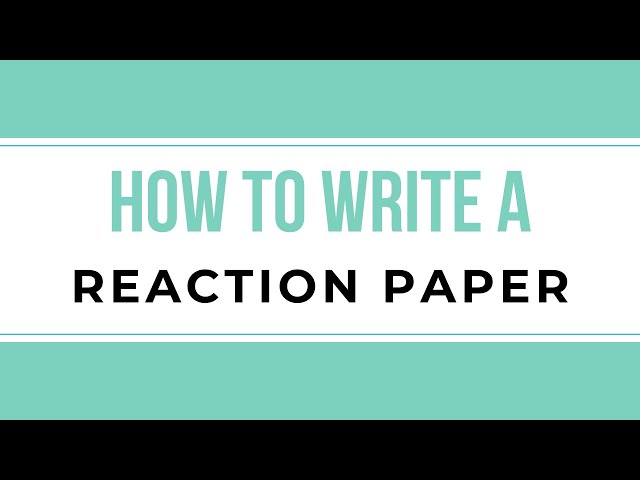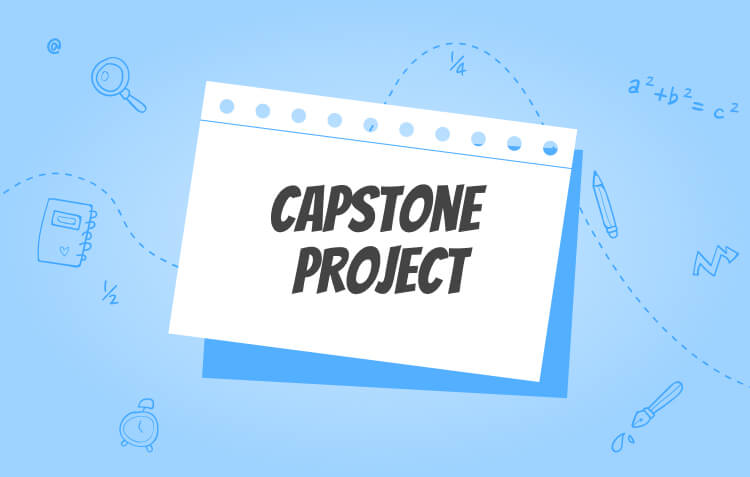
How to Write a Response Paper
WHAT IS A RESPONSE PAPER?
A response paper is an assignment in which your professor provides you with a prompt, an article or a text and asks that you respond to it. The key goal of a response paper is to demonstrate that you understand the material that has been assigned to you. This means engaging with the text of the prompt and responding to it in a manner that reflects your understanding of the text or other materials you are responding to. When you are writing a response paper, remember that your main goal is to make it clear to your teacher or professor that you understand the materials which are related to the response paper that you are writing.
With this in mind, writing a response paper unfortunately requires that you understand the material that you are writing about. If you are writing about an article, you will need to read this article as your professor will be grading your response paper on the basis of how they think you have understood what they have assigned to you. The same applies to a book. If you are responding to a prompt and expected to do additional research beyond this, your professor will be heavily focused on the degree to which you understand the materials. You cannot “wing” a response paper as you can many essays because writing a response paper requires that you show an understanding of the material. If you do not, your grade will suffer dramatically.
Some response papers will ask you to write only about the text or other work that has been assigned to you while others will ask you to relate what you have been asked to write about back to your own life or the world around you. These response papers are sometimes called reflection papers and are premised on gaining your personal opinion regarding the material that has been assigned to you. Understand the material is still critical to writing such a reflective response paper because your teacher of professor will be grading you on your understanding of what you are responding to more than anything else.
Ultimately however, a response paper is centered on the idea that you are responding to a prompt, book or article by demonstrating your understanding of it, and sometimes criticizing it. Response papers are assigned by teachers and professors to show that you understand the material and to make sure that you are completing your readings. To get a good grade when writing a response paper, you must absolutely have read the underlying materials so that your professor knows you are not writing nonsense and that you have actually read what they assigned to you.
HOW TO WRITE A RESPONSE PAPER
When you are writing a response paper, the first and most important thing to do is to make sure you understand the contents of what you are writing about. Whether you are responding to a prompt or a given article or text, you need to actually understand the contents of what you are discussing. Writing a response paper is one of the few types of essays in which you cannot quite simply wing it as your professor will expect you to understand what you are writing about. There is no room for “bullshit” in a response paper. Your professor will see through it rapidly. You truly need to understand what you are writing about when completing a response paper and must thus absolutely read the underlying materials.
Once you have ensured that you understand the material or text that you are writing your response paper in relation to, it is time to either come up with a thesis or an angle. If you are writing a response paper that is only a page or a paragraph, you will not have a formal thesis. Rather, you will have an angle, that is something like a thesis that will indicate how you are focusing on one particular element of what you are responding to. Your angle will guide your response to the text or prompt and will represent the critical thinking that you have completed in relation to the material you are responding to. As long as your angle is coherent and associated with the underlying materials, you will receive a good grade when you write a response paper.
If you are writing a longer form response paper, you will need to make use of a thesis and supporting body paragraphs so as to respond to that which has been assigned to you. These types of longer response papers will require that you follow a traditional essay format in which your thesis is followed by body paragraphs that all provide support for the thesis that you are arguing in favor of. Like with an essay or research paper, your conclusion should offer no new information but should instead represent the space in which you reflect on what you have learned while composing your response paper.
In the end and with response papers involving you sharing your personal opinion about what you have been assigned to write about, they sometimes involve the use of the first person. Even though using the first person is typically frowned upon when writing an academic essay or research paper, you should check with your teacher of professor if they want you to use the first person when you are writing a response paper. Because your professor cares about your understanding of what you have been assigned as measured by your opinion on it, your professor will very frequently encourage you to use the first person when writing a response paper.
HOW TO FORMAT A RESPONSE PAPER
Response papers are formatted in different ways. Short response papers will often be submitted without a title page and references. You might even just be posting your response paper to your online course discussion board. Sometimes your professor or teacher will ask you to provide a reference for what you are writing a response paper about and sometimes they will not. Regardless, the formatting of short response papers tends to be informal and you are unlikely to be docked significant points for formatting errors.
When writing a longer response paper however, you will need to make use of the referencing style and associated style guide that your teacher of professor wants you to use. Because a longer response paper is a type of research paper or essay, it should be formatted as such. If your response paper is longer than two pages or includes the mandatory use of additional sources, you should format it in a formal manner by making use of a style guide like APA, MLA, Chicago or Harvard as you would with any other essay or research paper. Make sure that you cite all of your sources when you are writing a longer response paper to avoid being accused of plagiarism.
WHAT IS THE DIFFERENCE BETWEEN A RESPONSE PAPER AND A RESEARCH PAPER?
The main difference between a response paper and a research paper is that you do not have much choice about what you are writing about when you are writing a response paper. Given that your professor has provided you with a prompt, text or article that you need to respond to, your goal in writing a response paper is to respond to what has been assigned to you and find a way to relate it to your life, the world around you or something else that you have learned in class. In contrast, a research paper is much longer than a response paper and tends to allow you much more leeway in terms of choosing what you will write about. While a research paper is open-ended in terms of how you will approach your chosen topic via your thesis, writing a response paper requires that you stick to the material that has been assigned to you and demonstrate a deep understanding of this material. While longer response papers will involve some elements of research as you will be asked to integrate other scholarly articles with what you are responding to, this is the exception rather the norm for writing a response paper.
